The food processing industry in KSA is established and well-positioned to grow at a considerable pace over the forthcoming years. Domestic, regional and international demands for Saudi food products has been increasing year on year, with seafood , dates and halal foods leading the way. The Kingdom is famed for its authentic Makkah/Medinah Halal food products and has the potential to turn the SAR 4.9 trillion (US$1.3 trillion) global Halal market in its favor. This sector also benefits from a well-developed ecosystem that is ready to meet the high standards and growing demands of the expanding marketplace. Investors should feel confident about the Saudi food processing sector given its established excellence and lucrative prospects.
, dates and halal foods leading the way. The Kingdom is famed for its authentic Makkah/Medinah Halal food products and has the potential to turn the SAR 4.9 trillion (US$1.3 trillion) global Halal market in its favor. This sector also benefits from a well-developed ecosystem that is ready to meet the high standards and growing demands of the expanding marketplace. Investors should feel confident about the Saudi food processing sector given its established excellence and lucrative prospects.
Saudi Arabia’s Food and Beverage (F&B) market is the largest and most attractive of the Middle East. Valued at SAR 169 billion (US$45 billion) and growing at a rate of 6% over the next 5 years, this market is showing no signs of slowing. The average household is reported to spend 18% of total expenditure on F&B, which is a domestic demand that amounts to 60% of total consumption in the GCC.
KSA’s Halal market is forecast to significantly grow from its current size of SAR 22.5 billion (US$6 billion) due to substantial increases in the number of Hajj & Umrah visitors (From 20m today to 50m in 2030) coupled with the increased adoption of Halal in all types of food.
Saudi Arabia has an established F&B industry that benefits from state-of-the-art technologies and highly advanced packaging, storage and distribution networks. The sector is also recognized for its home-grown rich pool of talent with over 100,000 employees that are continuing to climb in numbers.
Investors should also note that the Saudi Food and Drug Authority (SFDA) have set high standards for KSA businesses to align with global best practices and to commit to Vision 2030 objectives that “ensure development & food security”.
Building Materials
Saudi Arabia has a growing demand for building materials that is primarily being driven by the dynamics of the construction sector. Total spending over the past five years exceeded SAR 1.12 trillion (US $ 300 billion) and in 2017 spending hit an unprecedented SAR 270 billion (US $ 72 billion). The market is expected to grow at an annual rate of 7%, reaching a value of SAR 700 billion (US $ 186 billion) by 2030. Large-scale projects are the biggest drivers of demand growth in the building material industry, with NEOM city, the Red Sea project and Vision 2030’s goal of building one million new residential units over the next five years being top of the list.

Industrial & Spare Parts
Demand for equipment and spare parts is set to go through the roof, with an anticipated expenditure of SAR 1 trillion (US $270 billion) to be spent on domestic industrial equipment by 2030. KSA is naturally considering how its localized industries could benefit from this demand and has endowed initiatives that promote the procurement of locally produced products. The government is offering support to investors that invoke significant cost advantages to businesses setting up their manufacturing base in KSA.
Saudi Arabia is one of the world’s largest markets for industrial equipment and is currently valued at SAR 56 billion (US $ 15 billion). Local demand for industrial equipment is set to experience massive growth, with KSA anticipating to spend approximately SAR 1 trillion (USD 270 billion) on industrial equipment between now and 2030. Saudi Arabia currently imports 80% of its local demand for industrial equipment and machinery, valued at SAR 64 billion (US $ 17 billion). This sizeable demand offers significant potential for import substitution, leading the government and other market players to introduce local content initiatives that promote the procurement of locally produced products, thus significantly increasing demand for locally produced industrial equipment.
Driven by innovative programs, Saudi Arabia is set to leverage its considerable buying power across major state-owned enterprises to support local production. Significant initiatives include those led by SEC, SWCC, SABIC, the Ministry of Defense (AFED) and Aramco (IKTVA). Also, the Saudi Industrial Development Fund (SIDF) is one of the authorities that have been set up by the government to support investors. SIDF provides financial and advisory services that are needed to support the growth and development of localization. SIDF has supported hundreds of industrial joint ventures and provided more than SAR 52 billion (US $ 14 billion) in soft loans, of up to 75% of project financing, since its inception in 2016. The Saudi Industrial Property Authority (MODON) has been set up by the government to oversee the development of industrial cities. MODON is to ensure that industrial cities develop integrated infrastructure and services that are of the highest global standards and specifications. Furthermore, MODON is to create special industrial zones offering cheap rates for land (from USD 0.26 per m2) across 35+ cities.

Manufacturers benefit greatly from attractive incentives, import duties and utilities cost as well as from the Kingdom’s geographic proximity to the MENA region as it represents an export market with huge potential.
[source: “Saudi General investment Authority” data]